Staff Book Reviews by Genre: Dystopian
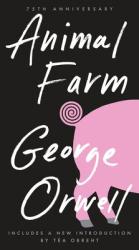
Animal Farm by George Orwell is a novel following a group of farm animals who want to topple their human farmer's regime, creating a society that is perfect for themselves. While Animal Farm starts off a bit ridiculous, using pigs and other farm animals as the main characters of the story, I think that Orwell using farm animals to explain the message of his story was actually very imaginative, and made the story much more intriguing and unique. Since Animal Farm's main theme is about revolution and the obstruction of democracy, I enjoyed analyzing the symbolism that was placed in the novel, seeing the hidden parallels between the farm animals and the historical events that were occurring during that time. I liked being able to link events from the story to real historical events, such as the communist movement, the Soviet Union, and World War 2. Personally, I think that Orwell's technique in linking his novel to these historical events by using only symbolism was very creative and was written in a very thoughtful and intelligent way. Seeing how some of the book events contrasted with historical events was very strange and interesting for me, and it made me wonder how Orwell could have even thought of linking the two subject matters by only using farm animals.
Overall, I would recommend this classic novel to anyone who is open to an interesting and thought-provoking read.
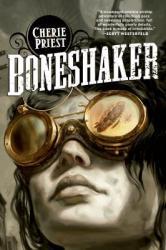
Boneshaker is the novel that kicks off Cherie Priest's "Clockwork Century" series - one of the most widely acclaimed book series in the Steampunk genre. Boneshaker explores an alternate history of the United States during the Civil War era. The plot centers around Briar Wilkes, the widow of the infamous Leviticus Blue - inventor of the titular boring machine that he was commissioned to create, in order to retrieve the vast veins of gold that are hiding under the thick ice of Alaska in the midst of the Klondike Gold Rush. During a devastating test run, the Boneshaker destroys the foundations of a good portion of Seattle, killing many, and releasing a dangerous gas that turns survivors into zombies. Leviticus disappears, and walls are erected around Seattle to contain the "blight" gas, and the "rotters". Briar does her best to survive and raise her son Zeke in the "Outskirts" of Seattle, suffering the prejudice shown to both of them, due to her husband's actions. Zeke is convinced that he can prove that his father was innocent, and that the destruction was purely unintentional, so he journeys beneath the wall, into Seattle to find the evidence he needs. Unlike Leviticus, Zeke's
grandfather (Maynard Wilkes) is revered as a folk hero, having lost his life in the exodus of Seattle, freeing inmates from the prison. Zeke feels this may help him if he runs into trouble within Seattle's walls. When Briar finds Zeke gone, and what his intentions are, she arms herself with Maynard's accoutrements and catches an air ship over the wall, to search for her son. Separately, Briar and Zeke find people who help to save them from being devoured by the "rotters", and attempt to aid them in their respective searches. Briar learns of the mysterious Dr. Minnericht who seems to run the
doomed city within the walls, and that many are convinced that he is in fact, Leviticus Blue (something she doesn't believe). When events draw Briar and Zeke both into Dr. Minnericht's stronghold, it seems the heart of the mystery
will be resolved with this fateful meeting.
Boneshaker is an epic foray into a dystopian alternate universe, and readers of various genres, are sure to find many wonders to be fascinated by in this version of Washington's famous "Emerald City".
In addition to physical book and audiobook formats, Boneshaker can also be downloaded and enjoyed at home, in either ebook or eaudiobook form.
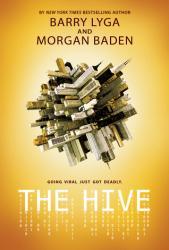
In the near future, an app called BLINQ tracks all social media usage and amalgamates posts from a number of platforms. On BLINQ, you can vote to condemn a person for their social media output – if a person’s condemns to likes ratio gets out of balance, they’ll find themself condemned in real life. For example, a person who ignominiously dumps their partner on Facebook might find themself getting physically dumped in the trash. The punishment is designed to fit the crime. Called the Hive, its something our lead Cassie loved to participate in – until all of a sudden, it wasn’t. After a racy tweet, Cassie finds herself the target of the Hive, but her punishment is more severe than all that have come before it: death.
This was a fast paced, enjoyable dystopia which was a good change of pace from my normal fare of fantasy. I think teens are going to love it. Aside from a few horrendous decisions, our lead Cassie is likable, smart (ostensibly, anyway) and her experiences navigating a new high school will resonate with teens. As Cassie spends most of the book running for her life, it will definitely appeal to thriller fans or those that need their books to be very plot based. I read the book in a day or two even though I had a good idea of how it was going to play out. Little attention is given to the supporting characters, though the book did also present a few chapters from Cassie’s mom’s perspective, which I loved. The authors did a great job portraying a somewhat fraught mother-daughter relationship. There’s though-provoking, if heavy handed, social commentary to be found as well, and I think this book will stick with some readers long after they've turned the last page.
Ultimately, though, the book had what I’m going to call the “Scythe” problem: the premise just wasn’t believable. The Hive was certainly believable – its basically a physical manifestation of the shame that we’re willing to dole out to strangers online (if you’d like a great non-fiction read on the topic, try So You’ve Been Publicly Shamed by Jon Ronson ). Did I for one second think that the first person to get the death penalty would be a teenage girl who tweeted something offensive? I did not. I had trouble getting over that.
TLDR: If you liked The Maze Runner, Divergent or yes, Scythe, you should definitely check out this thrilling dystopia.
Lots of teens will love this one, but it didn’t do it for me – 2 stars. It was ok.
Thanks to Netgalley and Kids Can Press for the eARC which I received in exchange for an unbiased review. The Hive will be released on 03 September but you can put your copy on hold today!
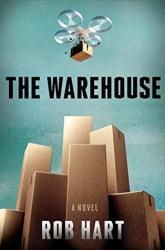
Imagine a world where Amazon controls pretty much everything (its really not hard to do, right?). They are the only large employer, and they have managed to put just about every other retail company out of business. Most folks who need employment have to head to their nearest Cloud center (Amazon = Cloud), apply, and hope against hope they are accepted. This is the fate of our two main protagonists, Zinnia and Paxton. Paxton wants more than anything to keep his head down until he can get patent money for his invention, a business that was going well until Cloud forced him out of business. Zinnia’s reasons for working at Cloud are a bit more inspired (it would depend on your perspective) as she’s been hired to try to take Cloud down from the inside. As Paxton and Zinnia are thrown together, both will come to realize that the Cloud was more insidious than they thought and they’ll have to sacrifice more than they’re comfortable with the bring it down.
I read this book right after watching John Oliver’s sendup of this sort of corporate culture and dang, Rob Hart did his research. His version of Amazon matches quite closely with what Oliver presents as the actual version of Amazon. I mean, it’s not great. Its really fascinating to read this near-future take on what Amazon and their ilk could mean for our country and economy as, like I said, this is a future that is really easy to imagine.
The book takes turn between Zinnia, Paxton and Gibson Wells’ (think Jeff Bezos) narratives. The characters are believable and likable enough (save Wells, but that’s obviously intentional) that I was not overly fond of one perspective over the other and never found myself racing through one perspective to get to a different one. Nonetheless, the book ends up being a quick read. It was sort of John Grisham meets Brave New World, and I was not mad about it. It’d make a fantastic movie, and clearly someone agrees with me as the author thanks Ron Howard and Bryan Glazer in his afterword.
If you are looking for a quick summer read that’ll make you think (but not too hard), this dystopian thriller will suit your needs. 4 stars – I really liked it!
Thanks to Crown and Netgalley for the free eARC which I received in exchange for an unbiased review. The Warehouse will be release on 20 August, and you can put your copy on hold today!
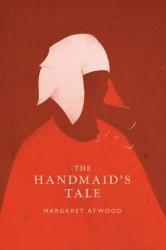
This book is old school dystopian literature. Atwood nails it. It's likely the best dystopian novel I have ever read.
Offred is a handmaid, a woman set aside for breeding purposes. Her only desire is to survive, but her memories push their way up into her mind. She had a husband and a child and they are gone. What broke my heart were the memories of her beloved child. It's so softly touched upon that it shows itself as a raw wound that she can barely handle.
Well told and powerful, I give this book 5 stars.
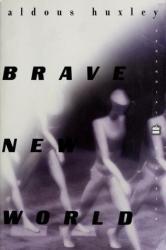
One of the first dystopian novels, Brave New World follows an outsider as he tries to navigate the workings of a society that has been developed into a utopia by using conditioning and genetic modification. Originally excited to visit this 'brave new world', Savage becomes increasingly distraught by the lack of humanity exhibited by its inhabitants.
I liked this book better than 1984, mostly because 1984 had some 'preachy' sections and this one had fewer and had a more interesting plot line to me. While 1984 was violent, Brave New World was promiscuous. Both books eschewed solitude for constant interaction, 1984 being involuntary, Brave New World, voluntary. Both books are worth reading.
One reason Brave New World is fascinating is because of the way they control the birth and childhood of the population by conditioning and genetics. Copulation is as common as a handshake and soma restores all to rights. All this was written in the 30s! Aldous Huxley is the man!
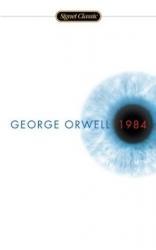
Okay, let me just say this: All you poser dystopian teen novels 'breaking the rules' with scandalous gratuitous plot elements better just step back. Nineteen Eighty-Four, the granddaddy of all dystopian novels, just handed your butt to you. This book isn't kidding around. Danger, insubordination, illicit sex, graphic torture, this book has it all. It's not for the weak of heart. And the ending is so powerful and heart-wrenching! The only reason it doesn't get 5 stars from me is the lengthy political and philosophical treatises that appear a few times in the book. I get it, this is the quiet power behind the novel and the part that is dissected by academia. But I'm not an academic, so it didn't do it for me.
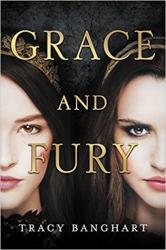
Serina has aimed to be a Grace her whole life. In a world where women aren’t allowed to learn to read, becoming one of the heir’s paramours is pretty much as good as it gets – otherwise she’ll be relegated to a life of work in a factory. When she’s selected to go to the palace to be considered for a position as a Grace, she’s beyond thrilled and takes her younger sister Nomi along as a handmaiden. But neither Serina nor Nomi are prepared for the backstabbing political machinations at large in the palace, and soon both girls will find their world turned upside down.
This was sold to me as The Selection meets The Handmaid’s Tale, which sounded super intriguing as I enjoyed those books for very different reasons - guilty pleasure and biting social commentary respectively. And one of the girls does have an arc that very much meets that description. Interestingly, I didn’t really like her story. Most of that has to do with the fact that we’re told that the character is smart and rebellious, but we’re mostly just shown her swanning around the palace making stupid decisions. The other sister has an arc that’s more Beauty Queens meets The Hunger Games, and I really enjoyed that one. It was a much more unique story, and the character experienced a lot of growth.
Because the sisters’ paths diverge, I feel that it’s fairly safe to say that at least one of the two stories will appeal to most YA dystopia and fantasy readers. If you like your dystopia with a dose of feminism, you’ll enjoy this slightly derivative series opener. I liked it. 3 stars.
Thanks to Little, Brown and Netgalley for the eARC, which I received in exchange for an honest review. Grace and Fury will become available for purchase on 31 July, but you can put your copy on hold today!
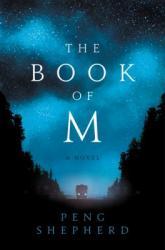
The Book of M is a beautiful dystopian novel about the power and beauty of memories and the pain that comes from losing them.
One day in a market in India, a man loses his shadow for no apparent reason anyone can explain. Shortly after, the man begins forgetting everything he ever knew, but in its place receives a strange and new power. This phenomenon of the lost shadow, soon becoming known as The Forgetting, spreads throughout the world and transform it into a strange dystopian world that is hardly recognizable.
The two main characters, Ory and Max, have escaped The Forgetting so far until one day, Max loses her shadow. Fearing that the more she forgets, the more dangerous she will become to Ory, she flees across a dark transformed world. All the while holding a tape recorder, on which she records her thoughts and feelings of the journey, and her experience of forgetting. Meanwhile Ory, not wanting to give up the little time they have left, follows her, embarking on a strange journey of his own.
The novel swivels back and forth, every other chapter, between his journey and hers. Max’s chapters to me were the most poignant, the most powerful. The recordings of her experiences on her journey, and the emotions she experiences as she fights against this inevitable loss, and slowly forgets everything, made me want to mourn with her for all she was losing. The emotions portrayed by Max’s character came across so real and raw, and anyone dealing with someone who is suffering from Alzheimer’s will be able to sympathize with this very real portrayal of what it’s like for them to forget everything about who they are. This novel is a tear jerker for sure!
Meanwhile Ory’s desperate attempt to find the woman he loves, is a testament to his hope in their survival and his belief in renewal, both for his wife, and I think on a deeper level, the world that was ravaged by the Forgetting. However, as his journey progresses, he is confronted with the reality of this new and dangerous world, and as he begins to adapt to this new world, he realizes that nothing will ever be the same again.
Filled with beautiful prose, strong character development, and peppered with details of a classic dystopian novel, this novel is a testament to the dystopian genre. Peng Shepherd does so much more than just tell a classic dystopian story, though. While it has all the classic elements of dystopian story, her portrayal of Max’s character almost made the novel read like a memoir but feel like a psychological thriller. Yet the existence of magic, and the way it shaped much of the spine of the story, took her novel into the realm of magical realism. The portrayal of war and action took her novel into the realm of an adventure story. Yet the stories focus on the female main character of Max, took the story into the realm of woman’s fiction. However, Max’s musing on her loving relationship with Ory, made the story delve into the realm of a romance. Taking her readers across a large geographic space, different cultures, different people, and different genres, she attempts and succeeds in a telling an ambitious and complicated story that seeks to display the power of the human spirit and ask what it is, to be human.
This story is beautiful, poignant, powerful, dark, filled with adventure, romance, and magic. The long story short, it has something for everyone. This book comes out June 5 but you can put it on your holds list today! If you haven't, please do! You won’t regret it!
Thank you to William Morrow a imprint of Harper Collins Publishers for an ARC of this beautiful novel in exchange for an honest review!
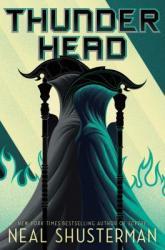
Hey y’all. It’s been a while since my last book review, so I’m going to talk to you for a minute about Neal Shusterman’s Thunderhead. Minor spoilers for Scythe will likely occur throughout, given that this is book #2 in trilogy.
Thunderhead is set in a future world of plenty, where death and poverty and illness and war have been eliminated by the Thunderhead, an artificial intelligence developed from what we currently call “the cloud.” Every human has nanites in their blood that reduce pain from any injury, and slowly repair any damage. And if by some unfortunate accident, you happen to die, a drone will recover your body and take you to the nearest facility where you can be revived (your first one’s free!).
However, in order to curb overpopulation, the Thunderhead allows for the Scythes. Scythes are an order of highly skilled assassins (of sorts) who exist to keep humanity’s numbers in check. They maintain a quota of gleanings, permanent deaths for a chosen few to remind people of the mortality that the entire race once faced. Anyone who is gleaned by a Scythe earns immunity for their family for a year.
Book one in the series, Scythe, follows Rowan and Citra, two young teens who are chosen as apprentices to Scythe Faraday, who intends for one of them to become his successor. Their training leads to the widening of schisms within the Scythedom, and soon they find themselves pitted against each other over the right and wrong ways to go about their duties of gleaning.
Thunderhead picks up several months after the events of Scythe, with Citra now serving as Scythe Anastasia, and Rowan operating in the shadows, gleaning other Scythes who he deems to be immoral and corrupt. Dubbed Scythe Lucifer, he lives a life on the run while Anastasia is honored for her rather benevolent take on gleaning (giving her victims a month’s warning, and allowing them to choose the means by which they will die).
This book introduces more perspectives from the Thunderhead itself, giving the reader powerful insight into the all-powerful AI’s thoughts and concerns. We also meet Greyson Tolliver, a young man who has devoted his entire life to serving the Thunderhead, and has his loyalty tested to the extreme. While this can feel like it’s drawing attention away from Rowan and Citra, it contributes to the worldbuilding. And while Scythe had a phenomenal dystopian feeling, there were many questions left unanswered that are picked up in these chapters and monologues.
Now Anastasia and her current mentor, Scythe Curie, have been targeted by a mysterious attacker who seems intent on ending them both permanently, while Rowan grapples with the consequences of his actions as Scythe Lucifer. The Thunderhead muses on the Separation of Scythe and State, lamenting its decision to refrain from interfering with the actions taken by members of the Scythedom, finding clever ways to work around the various safeguards that it has installed in society (and maybe finding out more than it was ever meant to know).
All in all, Thunderhead is a powerful followup to Scythe, a worthy companion and, to my simultaneous joy and rage, the second book in a trilogy. Book three is due in 2019, and I can’t wait to see how this all wraps up.
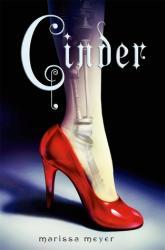
It's not the book's fault that it got 3 stars. I'm just not the target audience. I think that if I read this as a teenager I would give it 4 or 5 stars. That said, it was a good story. It's a dystopian Cinderella story involving a cyborg with a shrouded past, a young emporer, and an evil queen. Not too shabby.
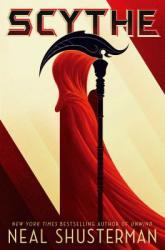
In 2041, what we currently call "the cloud" morphed into a version of AI called "the Thundercloud" that was able to solve all of the world's problems. Death has been basically eliminated - all manner of illness and injury can be cured, and pain is a thing of the past. Thundercloud stops the effects of global warming, and calculates how to best use the world's resources so that no one goes hungry. It's also made government completely irrelevant. However, to stop overpopulation, people called Scythes have to glean, or permanently kill, random members of the population. Scythe follows two teens, Citra and Rowan, as they reluctantly apprentice to become a Scythe.
I think Shusterman has another "Unwind" type of hit on his hands. As the book develops, the seemingly Utopian society gets darker and darker and more dystopian - but really only because of the gleaning. The Scythes have a rich history, and it was interesting to learn about them and their different approaches to gleaning. The book is absolutely at its best when examining humanity and the moral obligations and quandaries that come along with being a scythe - I ended up reading the occasional sentence out loud to my partner, which is something to which I rarely subject him. The ethical implications of gleaning are pretty huge, and the examination of killing and its purpose are what really makes the book a fun read. Also, no surprises here, Shusterman, a National Book Award winner, can WRITE.
I did feel that the book had some premise issues. As the book explains it, your chances of being gleaned, or even knowing someone who has been gleaned, are pretty rare. So why is gleaning even necessary? The book addresses this, but the answer was not satisfactory. I can also easily think of solutions to this problem that don't involve random killing. For example, why not impose some sort of birth limit (people have dozens of children in this version of the future)? Or maybe only those that have children are eligible for gleaning? Or maybe you only get "9 lives". The tenth time you die, it's for real. There wouldn't have been a book without the gleaning, but the book also never managed to convince me that gleaning was a thing that actually needed to happen. I also found it terribly convenient/nonsensical that the Scythes were the only group of people that operated outside of Thundercloud. Like, why? Thundercloud literally solved ALL of humanity's/the earth's problems, but this, life and death, one of the arguably most important problems, we're going to leave up to humans? Mmmmmmmmmmk. Oh, and then Citra and Rowan are eventually pitted against each other, and the rationale as to why makes absolutely no sense. Especially after a certain event transpires, and they STILL are in a fight to the death. It doesn't seem consistent with the rest of the world-building; it felt like a contrived (and unsuccessful) plot device.
Premise problems aside, I really did enjoy the book. If you like near future books, dystopians or ethics, it's definitely worth a read. 3.5 stars.
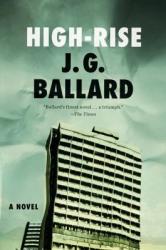
High-Rise (1975) begins with one of the most memorable first lines I’ve ever read, "Later, as he sat on his balcony eating the dog, Dr. Robert Laing reflected on the unusual events that had taken place within this huge apartment building during the previous three months". Laing is a new tenant in a futuristic high rise apartment building on the outskirts of London. The high rise is a microcosm containing restaurants, playgrounds, a swimming pool, and even its own supermarket. There is social order: the wealthiest tenants occupy the building's upper floors with the best views, while the middle-class tenants reside in the lower half of the building, constantly at the mercy of falling champagne bottles from the upper floors. Before long, tensions arise between the tenants of the upper and lower floors. Alternating between Laing and another tenant, Richard Wilder, we witness first-hand the deterioration of ethics and social order within the high rise. Elevators are commandeered, rooms are barricaded, alliances are formed, and blood is shed. Little by little, the layers of human behavior are peeled back, exposing a terrifyingly animalistic core at the heart of the high rise tenants.
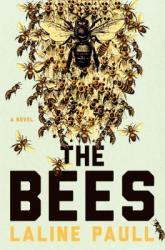
My first thought when this book was recommended to me was, “Bees? Is that metaphor? What do the bees stand for?” NOPE. This book is literally about bees. But not in a nonfiction, documentary kind of way. Here we have a novel in which we discover the world of bees personified.
Enter our main character, Flora 717. She was born the lowest of the low: the sanitation worker bee. Ugly, underappreciated, but unlike her fellow floras, she can speak. One of the higher levels of bees, a priestess to the queen, immediately takes notice of her oddities and experiments with her in roles not typical to a flora.
Flora 717 finds herself in almost every aspect of bee life at some point of her journey through the hive, uncovering secrets as she learns, grows, experiences the most profound loss, and transcends to the highest joys. The ordinary life of these black and yellow creatures we see and often fear is re-imagined into a relatable tale that pierces the veil between bees and humans. Though humans play very little role in the book, the bees exhibit many characteristics of humanity.
The tone of this book can be a bit dark at times with graphic imagery, but I highly recommend it.

Greta Stuart has been a hostage for most of her life. Well, technically, she's one of the "children of peace". You see, long ago, after the world was ravaged by the effects of global warming, an AI named Talis put himself in control, and decided to almost completely eradicate war by having the leader of each country turn over their heir to be a "child of peace" until the child reached the age of 18. Should that country go to war, the child will be killed. Greta's nation, the Pan Pols (Canada) are about to go to war over water, and Greta knows that her death is imminent.
This book is hard to explain. Basically, the world-building is pretty detailed, but not without some holes (many of which are explained by the end of the book), and most of the first half of the book was spent explaining the world that Greta and her fellow hostages lived in. Also, Greta is the proverbial ice princess - she is fairly stoic, even in her own head, and so I didn't think she was very likable for the first half of the book.
However, as the book progresses, Greta really comes into her own. Her stoicism and propriety have given her a certain amount of power in regards to the fellow children of peace, and it's really fun to see her step up and wield that power. And then, stuff goes terribly, horribly wrong, and the pacing and intrigue of the story really pick up.
I'd give the first half of the book 2 stars, and the second half 5. So, over all, like a 3.5 or something. By the end, I was loving it. If you like really complex dystopian novels (this is more like 1984 than Divergent), then this one is not to be missed.
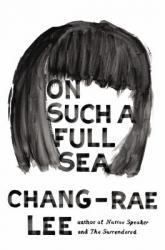
On Such a Full Sea opens in a futuristic Baltimore (“B-Mor”). The protagonist, Fan, is the descendant of refugees from a Chinese city whose population was transplanted to America to work in fisheries after the complete environmental collapse of their homeland. The US at this time is in crisis, with limited resources divided unevenly among the heavily stratified classes. There’s a very rare chance for children to be “promoted” into the upper classes via a national exam, as indeed Fan’s brother was, but most of the country lives in labor colonies and has their career set at birth -- in the government-controlled regions, that is. Outside the carefully controlled urban production centers, there’s nothing but lawless wilderness across most of the country (the so-called “open counties”).
The plot kicks off when Fan’s boyfriend (and father of her unborn child) goes missing -- possibly taken by government officials -- and she sets out into the wild open counties outside of B-Mor to search for him, encountering a bizarre, violent world. Fan is a bit flat -- in fact, nearly all of the characters are -- but what really stood out was the way the story was narrated. It’s told not from Fan’s perspective but from the point of view of the community back in B-Mor, always speaking as “we”. The narrator relates to us the legend that has grown up around Fan since her escape, speculating on what it was about her and this incident that sparked so much fascination -- and briefly protest -- in an otherwise defeated community. What we “learn” about Fan’s adventures is thus largely a compilation of the stories that have grown up around her since she left B-Mor. Her characterization makes a bit more sense when you think of her as a folk hero, but some readers may dislike the lack of insight into what she’s thinking or feeling. We move back and forth between events in B-Mor and episodes in Fan's search for her boyfriend, which (despite the weaknesses I mentioned) were inventive and compelling.
It’s not an entirely original setting, and the narration style was a bit (okay, a lot) off-putting at first, but the writing itself was beautiful and I ended up enjoying it much more than I had expected. If you like dystopian fiction, I’d recommend giving this book a try.
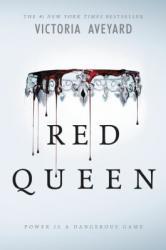
Mare Bellow's blood is red, which marks her for a life in poverty at best, and a brutal death on the front lines of a war she didn't ask for, at worst. She lives under the harsh rule of the Silvers, folks with special powers (mostly elemental, though some are X-men like). Later, surprise surprise, she finds out that she has special powers too and her life is upended.
Confession: I tried to read this book like 5 times. I finally got through it. I should've stopped trying. This book is one big, cliched, full of plot holes mess, there's a seriously stupid, unlikable, mean (and not even in a fun way) main character. In addition to an unoriginal plot and vapid characters, the writing is not stellar. I can see a certain type of reader enjoying it, but it certainly wasn't for me.
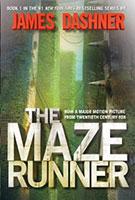
This is a very good book. It's a teen fiction book, but I didn't notice that like I normally do. The main character found himself in a bizarre situation with very little memory of his past and who he was. This book was really about a group of kids overcoming insurmountable odds to beat a game, the success or failure of which determined their lives. There was a lot of mystery about what was going on behind the scenes. Small pieces became known as the book progressed, just enough to pique my curiosity, but not enough to ruin the suspense. I'd like to read the others in this series. Really VERY well done.
This is a teen melodrama romance so there's a bit of navel gazing going on. It seemed to me that the main character tried too hard to be poetic, which was somewhat annoying. But it picks up towards the middle and becomes a more interesting. I plan to read the second in the series. If I were a teenage girl, I would probably give this book a higher rating, so apologies to the author.